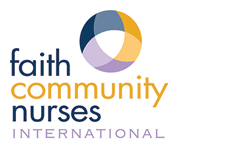Abstract
Abstract
Objective(s)
Faith community nurses (FCNs) provide transitional care to community patients following discharge from acute care facilities. Study objectives: describe transitional care using a standardized nursing language, Nursing Intervention Classification (NIC) and compare transitional care interventions to those considered to be evidenced-based.
Sample
Two years of de-identified intervention data captured from the FCN’s documentation of transitional care.
Design
A mixed method descriptive design was used to facilitate a thorough exploration of the interventions. A qualitative descriptive method operationalized the concepts regarding transitional care interventions performed. A quantitative descriptive design was used to count nominal categories of documented nursing interventions.
Results
A total of 1556 interventions were documented with 32 NICs describing the bulk of transitional care interventions provided. The most frequent Classes of NIC were Coping Assistance, Communication Enhancement, Patient Education, Information Management, Health System Mediation, Physical Comfort Promotion, Lifespan Care, Behavioral Therapy, Activity and Exercise Management, Cognitive Therapy, Tissue Perfusion Management, Self-Care Facilitation, Drug Management, Nutrition Support, and Community Health Promotion.
Conclusions
In addition to evidenced best practice transitional care interventions, emotional and spiritual support was provided. This is important because patients have specific characteristics and nonclinical needs, such as spiritual beliefs and needs, that can affect the way they perceive, receive, and participate in health care.
First Page
20
